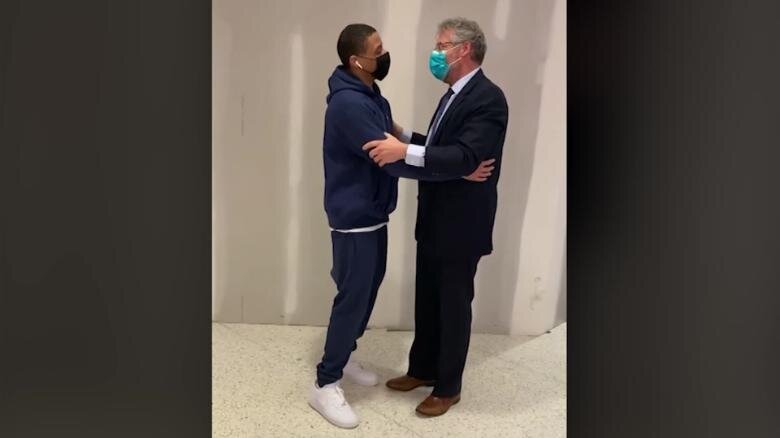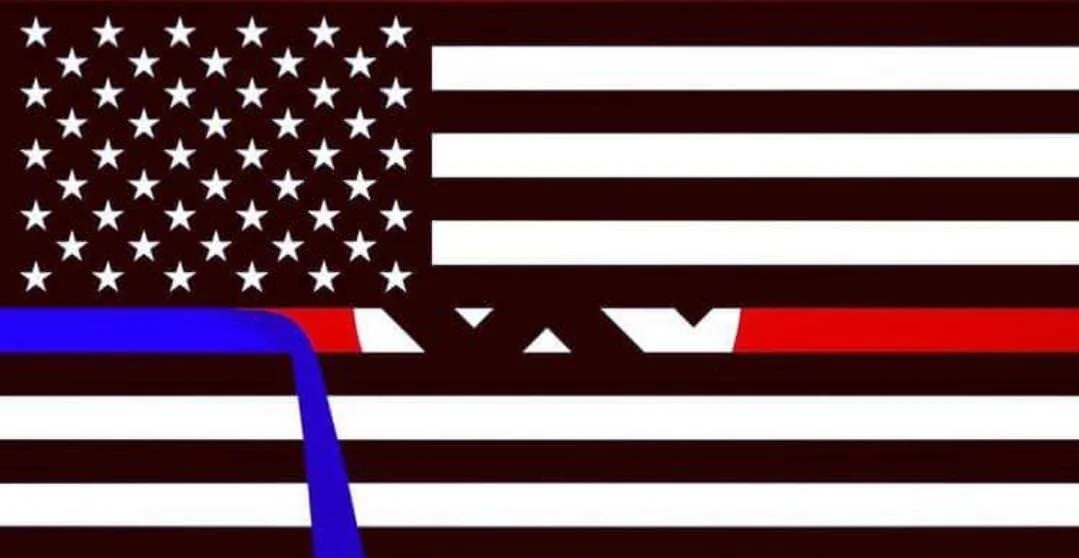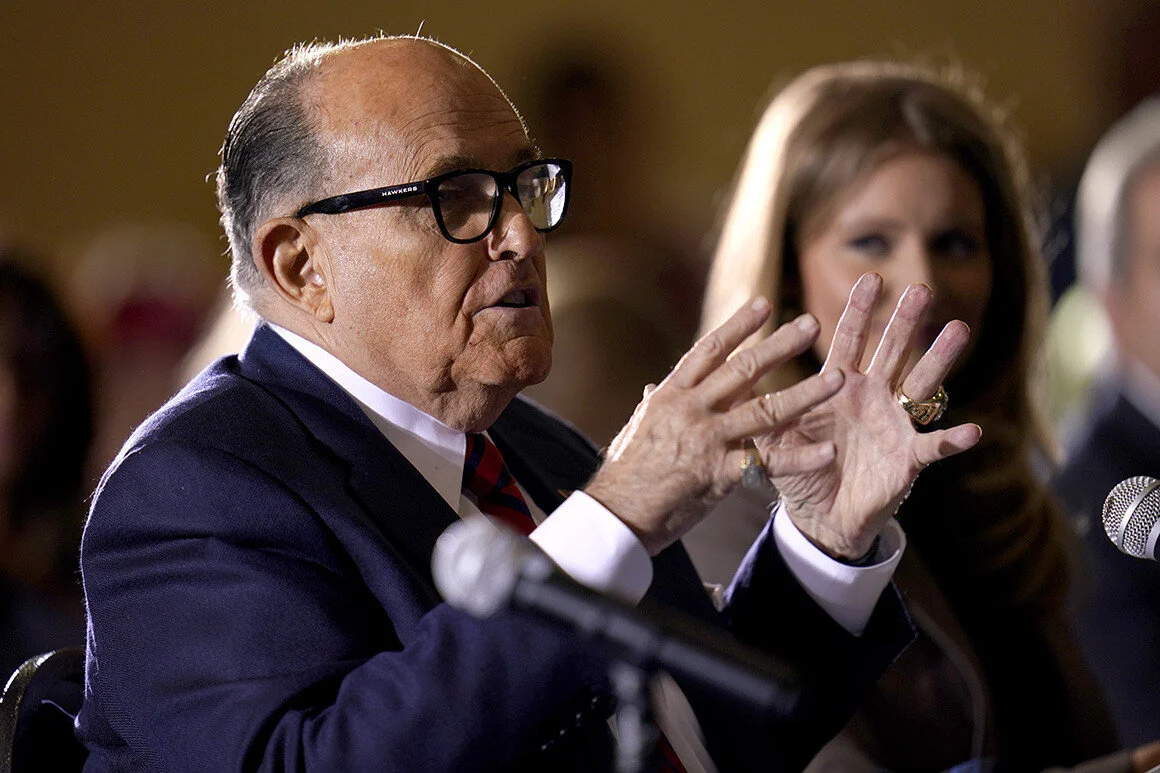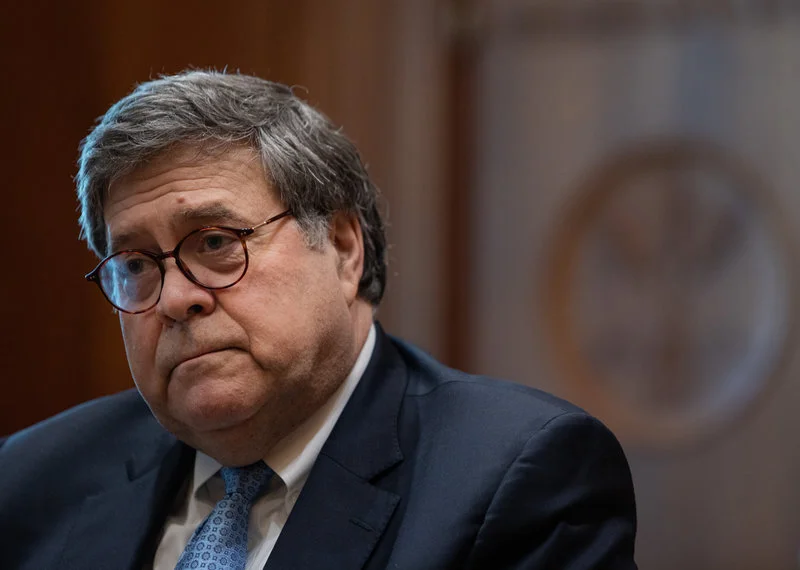A happy ending to the story of Chris Young, as told by former federal judge Kevin Sharp back in episode #55.
Read MoreAn ambitious but controversial program to surveil the entire city of Baltimore from above is on hold after its philanthropic backer had second thoughts.
Read MoreSan Francisco DA Chesa Boudin and Los Angeles DA George Gascon are the newest members of a club we've been following for a while: progressive prosecutors elected on ambitious criminal justice reform platforms. Like their counterparts in Chicago, Philadelphia, St Louis, and other cities where voters have demanded sweeping change, Boudin and Gascon are facing fierce pushback from defenders of the status quo.
Read MoreSurprised at how many current and former law enforcement officers participated in the January 6 attack on the U.S. Capitol? Don't be.
Read MoreSome reflections on the events of January 6 in Washington D.C.
Read MoreWhy did the Trump legal team fail to overturn the election in court? It's not complicated.
Read MoreAs president, Joe Biden can fight for the criminal justice reforms the electorate is demanding... or he can double down on his decades-long advocacy for tougher policing, harsher sentencing, and stricter drug laws. With Inauguration Day on the horizon, we ask: what will Joe do?
Read MorePolice accountability, cash bail, drug decriminalization and legalization, and strong reform candidates were all on the ballot this November. Dave reviews the results.
Read MoreJudging from the unexpectedly close presidential election result, the U.S. electorate is as polarized as ever -- at least in terms of partisan alignment. But there's one issue on which the 2020 vote reveals widespread and growing agreement among Americans from across all demographics and in almost every part of the country: the decriminalization and full legalization of marijuana and, increasingly, other drugs.
Read More"Systemic racism" refers to systems that produce racially disparate outcomes regardless of the individual motivations, values, or personal qualities of the people working within them. The criminal justice system doesn't require individual police officers, lawyers or judges to hold racist views in order to structurally uphold white supremacy. But -- as the case of suspended Pennsylvania judge Mark Tranquilli vividly illustrates -- plenty of them do anyway.
Read MorePresumptive Justice-to-be Amy Coney Barrett is conservative in both her political ideology and her judicial philosophy. But that doesn't mean she'll automatically side with police and prosecutors on the Supreme Court bench. Indeed, if her mentor Antonin Scalia is any guide, Coney Barrett may be less predictable on criminal justice than on other social issues.
Read MoreFor decades, Joe Biden has claimed credit for crafting and championing the 1994 Crime Bill, now widely regarded as the policy foundation for the modern carceral state, the school-to-prison pipeline, and the systematic, often militarized overpolicing of Black communities. It's no surprise that Biden's very public association with that legislation has become a political liability in the Black Lives Matter era. But he's far from being the only member of his party who bears responsibility.
Read MoreWho bears responsibility for Breonna Taylor's murder?
Read MoreRemembering the late Supreme Court Justice Ruth Bader Ginsburg.
Read MoreDave reviews the recently concluded U.S. Supreme Court session with 90.5 WESA's Kevin Gavin on The Confluence.
Read MoreWhat's the meaning of Donald Trump's decision to commute the sentence of Roger Stone? And what went on behind the scenes?
Read MoreOn June 10, Dave gave an hour-long presentation on law and racial justice for the Center on Race and Social Problems at the University of Pittsburgh. We invite you to check out the video on YouTube:
Read MoreMinneapolis takes a bold step, announcing it will dismantle the police department that sparked nationwide protests with the murder of George Floyd -- and just like that, "defund the police" graduates from activist rallying cry to viable policy option.
Read MoreDerek Chauvin faces second- and third-degree murder and assault charges, and the three other Minneapolis police officers who watched him kill George Floyd are charged with aiding and abetting the crime. Why not first-degree? What do the charges mean? Dave breaks down the prosecution's reasoning.
Read More



















